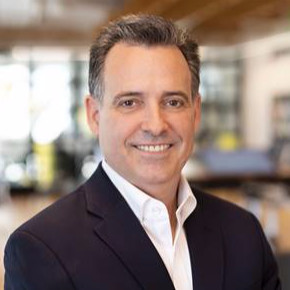Government agencies are indeed seeing a rise in fraud.
Often, those who rely on government services — including millions of citizens who became unemployed for the first time during the pandemic — are the ones most harmed, experiencing delayed checks, denied claims due to identity theft, and additional identity verification requirements.
In a new Thomson Reuters report, 2021 Government Fraud, Waste, and Abuse Study , more than 100 state and local agency officials responded, painting a picture of how fraud impacted the agencies and American citizens who may depend on them for survival. Survey respondents almost unanimously agreed that fraud isn’t going anywhere. In fact, it is likely to stay at the same high level or even get worse as we move through 2021.
Why? Because the COVID-19 pandemic presented a myriad of challenges to relief efforts, including the difficulties of maintaining regular services in fraud prevention and detection, according to the report. Criminal actors fit a variety of profiles — from regular street hustlers looking to steal money, to professional hackers or other digital intruders looking to steal and sell personal information. But perhaps the largest threat came from organized crime groups who worked together to cheat unemployment programs out of large sums of money.
You can listen to the full podcast with Thomson Reuters’ Jon Coss here, and you can access the full 2021 Government Fraud, Waste, and Abuse Study here.
These are equal-opportunity global crime syndicates, not confined by state borders, and if they have successfully victimized one state, chances are they also tried their luck in multiple other states with some level of success.
The report did contain some good news, however, discussing measures that could be taken to improve fraud-prevention efforts in agencies and departments where resources may be limited or insufficient.
In our latest Thomson Reuters Institute Market Insights channel, Gina Jurva, attorney and manager of Market Insights & Thought Leadership for Government and Corporates at Thomson Reuters, spoke with Jon Coss, vice president in Risk, Fraud & Compliance in Thomson Reuters’ Government unit. The pair walked through some of the highlights of the survey and discussed ways in which government agencies can remain proactive in the fight against fraud.

The challenges faced by agencies today will likely continue to test those that are on the front lines, Coss explains in the podcast, adding that the most efficient and effective way to prevent fraud waste and abuse is to stop it from happening at the outset. And survey respondents agreed, indicating that they wanted to spend more time on fraud prevention, rather than detection, in 2021.
Indeed, the losses incurred are often difficult to recover, especially when the criminal actors are overseas, Coss notes, and working to prevent these activities is much more cost-effective than catching them after the fact.
Identity verification & technology
The podcast and the report offer several suggestions for what government agencies can do to level the playing field against sophisticated criminal actors. For example, technology can be used to fight fraud in the following ways:
- Stopping fraudsters at the “front door” by rapidly verifying identities.
- Implementing a sophisticated scoring system to triage investigations, so agencies can identify and address the largest risk areas in their systems.
- Utilizing detection models to detect fraudulent “breadcrumbs” such as shared-applicant bank accounts, IP addresses, or other information that may indicate collusive fraud.
- Establishing more sophisticated pattern-detection, program-specific models, and fictitious business detection algorithms to identify more sophisticated schemes.








